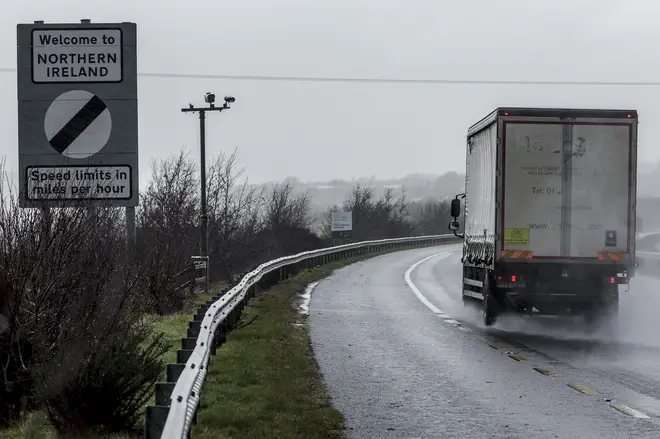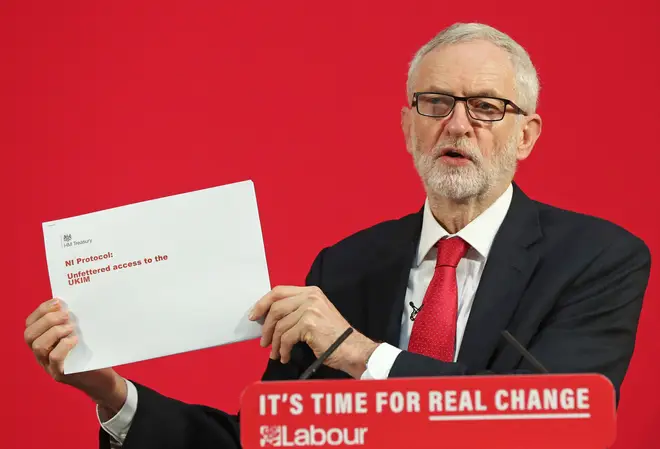
Matthew Wright 7am - 10am
6 December 2019, 13:41 | Updated: 2 April 2020, 14:58

Labour have released a leaked government document claiming it is proof there will be checks on the Irish border after Brexit, but Boris Johnson insists there won't be. So who is right? LBC's Matthew Thompson explains.
When is a spade not a spade? When Boris Johnson, presented with the aforementioned spade, continues to insist it’s a fork?
This morning the Labour Party revealed a Treasury analysis of the impact of Mr Johnson’s deal on Northern Ireland. It didn’t reveal much that we didn’t already know. Essentially, it was confirmation that Northern Ireland’s continued alignment with some EU rules would result in checks taking place on goods crossing the Irish Sea.
Confirmation we’d already had from Brexit Secretary Stephen Barclay, and Northern Ireland Secretary Julian Smith.
It’s the reason for the split between the Conservatives and their confidence and supply partners the DUP.
In some ways it’s the reason we’re having this election, since that same split made it next to impossible for Mr Johnson to get his deal through Parliament.

And yet, pushed on it today, Mr Johnson insisted “there will be no checks on goods going from GB to NI, from NI to GB because we are going to come out of the EU whole and entire.”
But the Treasury documents are explicit: “Customs declarations and documentary and physical checks on W/E and E/W will be highly disruptive to the NI economy”.
The overwhelming majority (98%) of exporters from NI to GB are small and medium sized businesses. The Treasury analysis says that such businesses “will struggle to bear this cost”.
Now, the Conservatives have hit back today, saying that the Treasury documents were just a “flash analysis” drawn up immediately after the deal was struck, and only consider what the impact “might be”.
But that doesn’t quite stack up either.
It boils down to this: Boris Johnson’s deal keeps Northern Ireland in an EU regulatory zone. The rules of that zone *require* a minimum amount of checks, particularly on things like animal products (meat, fish and dairy).
Yes, it’s possible to negotiate a Free Trade Deal that minimises some of the possible barriers to trade. A zero-tariff deal for instance would at a stroke get rid of the complex tariff system proposed in the deal.
But if the UK insists on a hard Brexit, leaving behind the customs union and single market, there will inevitably be barriers to trade with NI. And the more the UK diverges, the greater the barriers to trade in the Irish Sea will become.
Unionism knows it. Members of his own cabinet know it. It’s about time Boris Johnson stopped digging long enough to look at the spade in his hand.